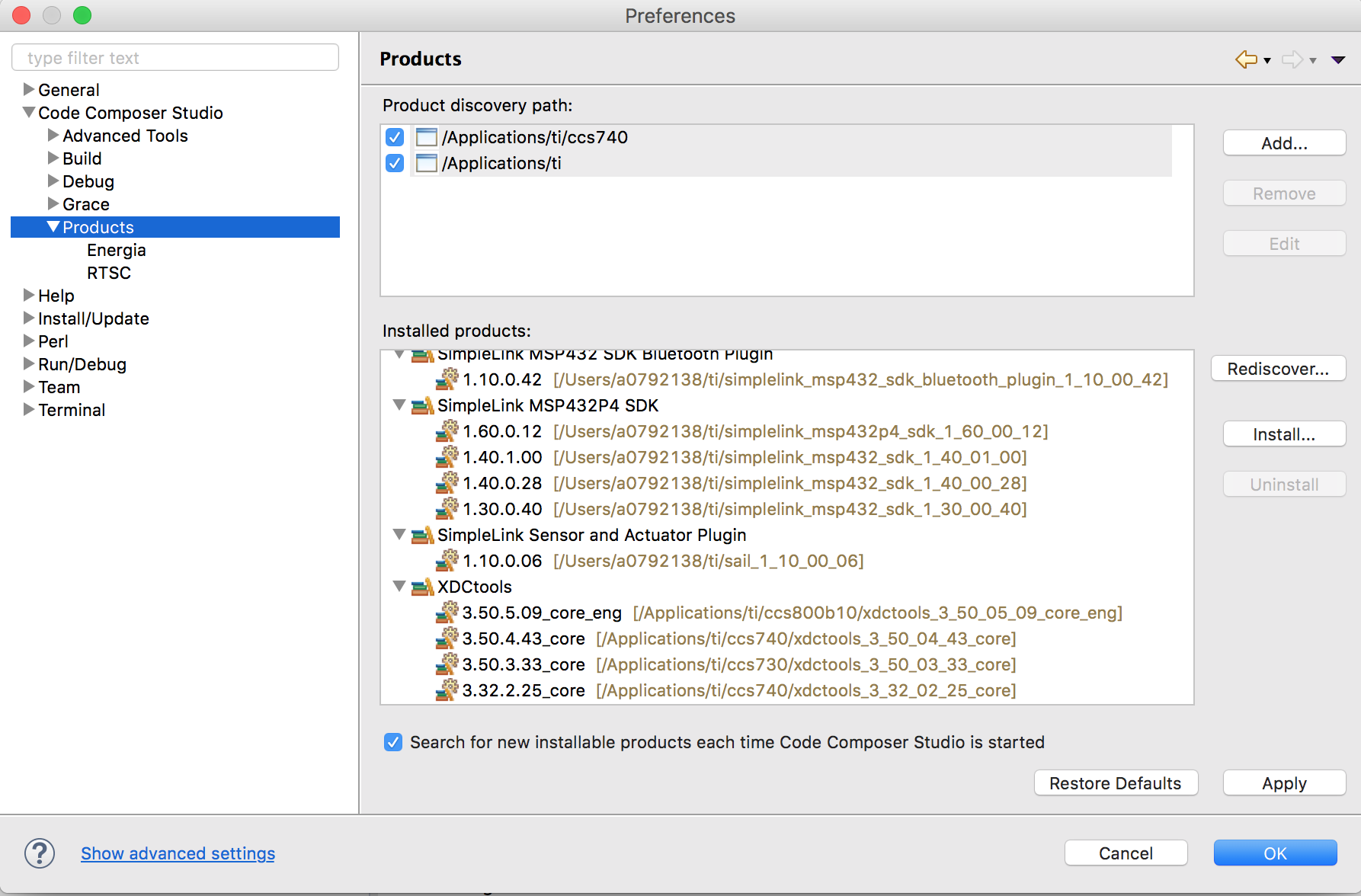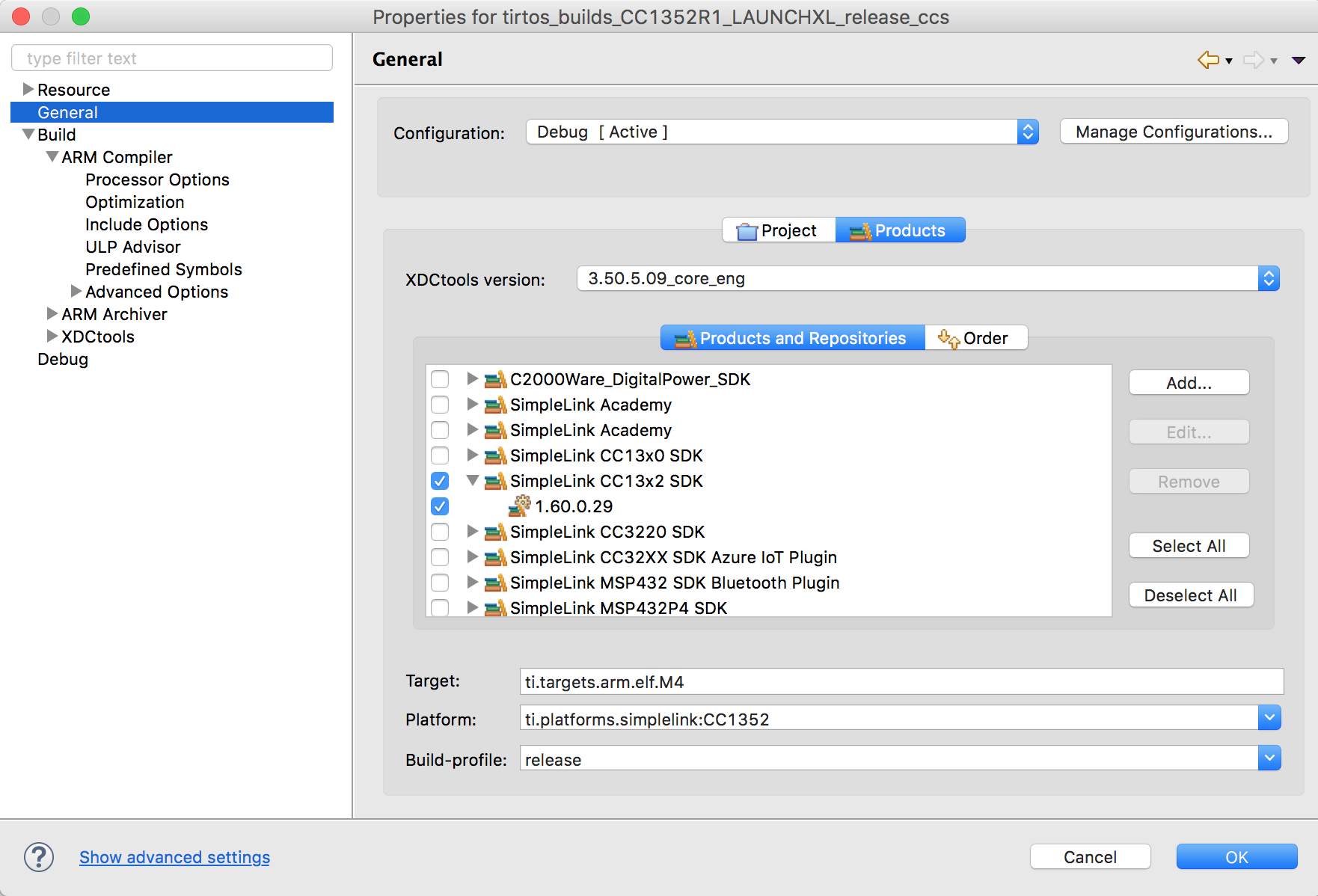Tool/software: Code Composer Studio
Hi I have project created in CCS5 with Complier 7.4.1. Of late, I have imported it on to CCS7.4 and Complier 8.2.2.
I am using custom linker. I see large size difference in .const:.string of .const section between CCS5 and CCS7 generated .map files.
Some thing like:
CCS5 .map file
.const 0 108b7ce0 0001809e
xxxxxxx 000005ac main.obj (.const:.string)
CCS7 .map file
.const 0 108b7d10 000264de
xxxxxxxx 00000964 main.obj (.const:.string)
Code is exactly the same.
I guess .const:.strings. are the string literals in the code. My main.c file has sprintfs along with UART messages.
Why there is difference in size?
I need UART support even in my production release to monitor the code behavior.
Thank you
Pradeep



